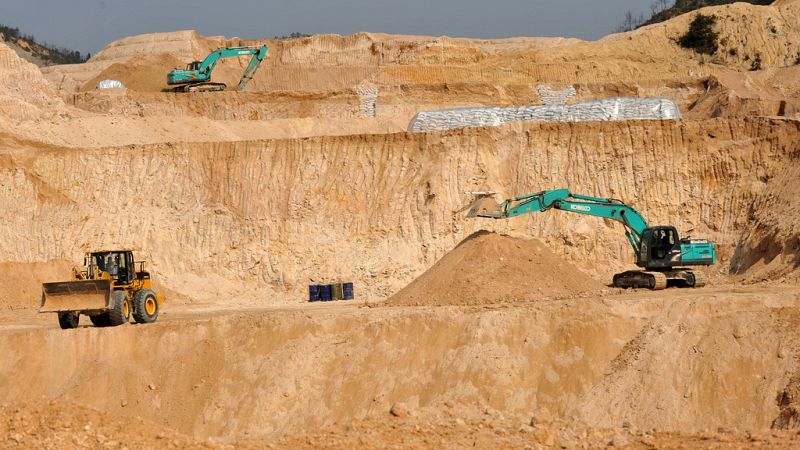
As China outlined new curbs on exports of rare earths and related technologies on Thursday, the European Commission expressed its hope that the Asian country will keep respecting agreements that protect the supply chain for European companies.
"President von der Leyen and President Kosta discussed these matters in detail with Chinese President Xi Jinping and Premier Li Chang during the EU-China summit held in Beijing this July," said a spokesperson on behalf of the European Commission on Thursday, adding that "at the summit, they agreed to upgrade the bilateral dialogue on trade to enhance transparency and establish guarantees for European companies, particularly in the supply of permanent magnets and rare earth elements."
"The Commission expects China to act as a reliable partner and to ensure stable, predictable access to critical raw materials. We will assess these latest developments in this context."
The spokespersons also emphasised the ongoing efforts of the EU to diversify the sourcing of critical materials "for quite some time now", working with partners, including Chile and Argentina.
With the latest step, China has extended controls over the use of the elements critical for many products from defence technologies to carmaking.
The regulations announced by the Ministry of Commerce require foreign companies to get special approval to export items that contain even small traces of rare earth elements sourced from China.
Beijing will also impose permitting requirements on exports of technologies related to rare earths mining, smelting, recycling and magnet-making, it said.
China accounts for nearly 70% of the world's rare earth mining. It also controls roughly 90% of global rare earths processing.
Access to such materials is a key point of contention in trade talks between Washington and Beijing before the leaders of the two countries meet later this month.
As Trump has raised tariffs on imports of many products from China, Beijing has doubled down on controls on the strategically vital minerals, raising concerns over potential shortages for manufacturers in the US and elsewhere.
It was not immediately clear how China plans to enforce the new policies overseas.
The critical minerals are used in a broad range of products, from jet engines, radar systems and automotives to consumer electronics, including laptops and phones.
The new restrictions are to "better safeguard national security" and to stop uses in "sensitive fields such as the military" that stem from rare earths processed or sourced from China or from its related technologies, the Commerce Ministry said.
It said some unnamed "overseas bodies and individuals" had transferred rare earth elements and technologies from China abroad for military or other sensitive uses, which caused "significant damage" to its national security.
The new curbs were announced just weeks ahead of an expected meeting between Trump and Chinese President Xi Jinping in late October on the sidelines of the Asia-Pacific Economic Cooperation forum in South Korea.
"Rare earths will continue to be a key part of negotiations for Washington and Beijing," George Chen, a partner at The Asia Group, said in an emailed comment. "Both sides want more stability, but there will still be a lot of noise before the two leaders, President Trump and Xi, can make a final deal next year when they meet. Those noises are all negotiation tactics."
In April, Chinese authorities imposed export curbs on seven rare earth elements shortly after Trump unveiled his steep tariffs on many trading partners, including China.
While supplies remain uncertain, China approved some permits for rare earth exports in June and said it was speeding up its approval processes.







